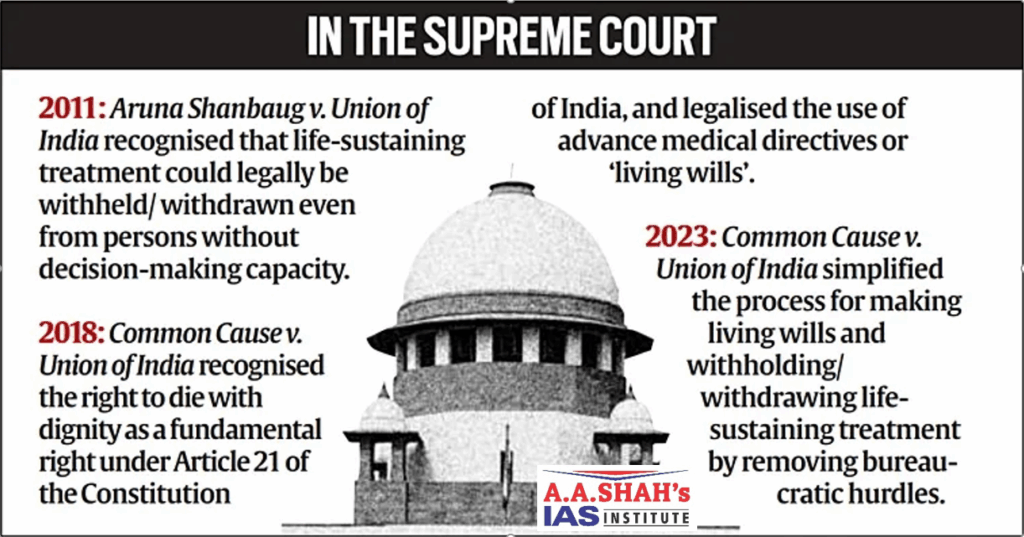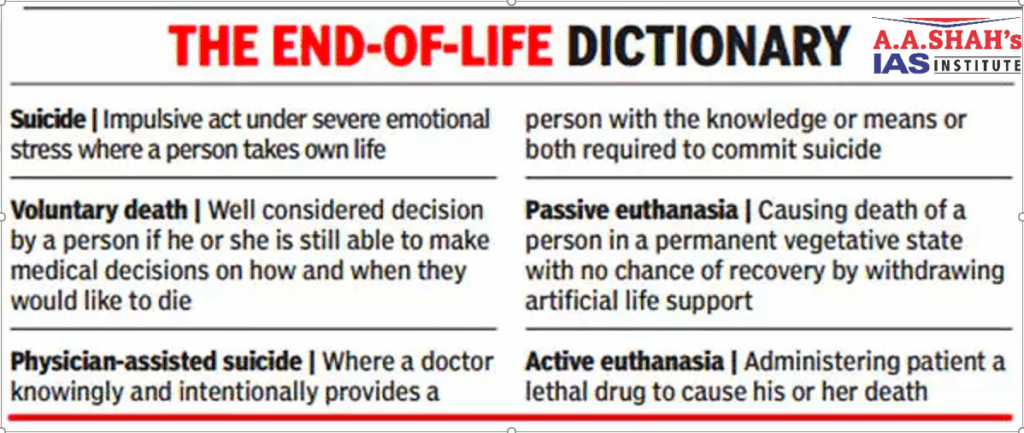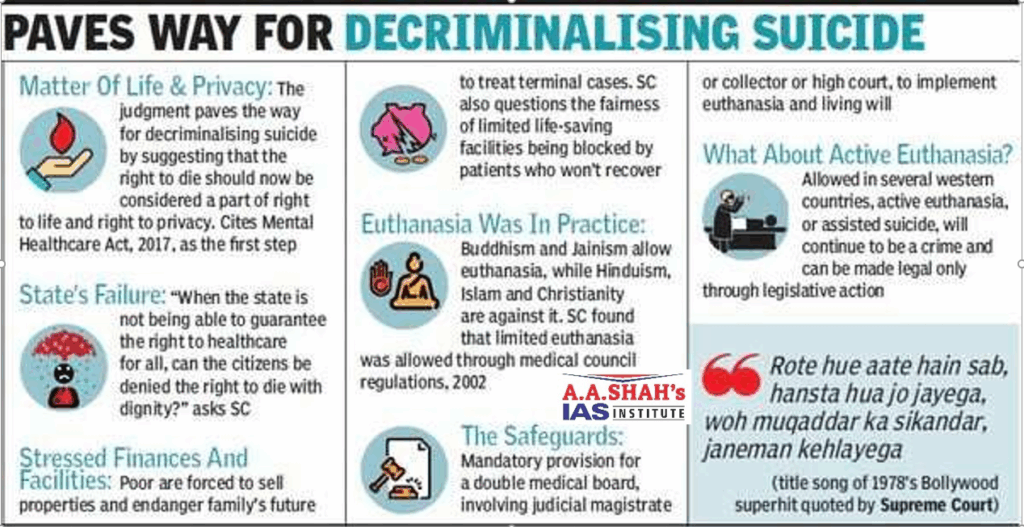Reforming passive euthanasia in India
POLITY – RIGHTS
7 OCTOBER 2025
- In June 2025, the U.K.’s House of Commons passed the Terminally Ill Adults (End of Life) Bill, reigniting a global conversation about euthanasia.
- The proposed law permits physician-assisted dying for mentally competent adults expected to live fewer than six months, subject to medical certification and oversight by a national panel.
- While it is awaiting approval from the House of Lords, the Bill marks a bold legal and moral step that many western countries have embraced.
- While India has recognised passive euthanasia through a series of Supreme Court judgments, it has consciously drawn a line against active euthanasia.
- Passive euthanasia permits the withdrawal of life-sustaining treatment when it merely prolongs suffering.
- Article 21 of the Constitution guarantees the right to life and has been interpreted to include the right to die with dignity.
- For patients in terminal stages or their families, the delays amount to cruelty.
- Reforming passive euthanasia does not require India to imitate the U.K.’s active euthanasia model, but it does compel it to make the current framework workable.
- Digitally driven procedures, local hospital-based ethics review, and effective (but not burdensome) oversight can make end-of-life decisions more accessible and humane.


